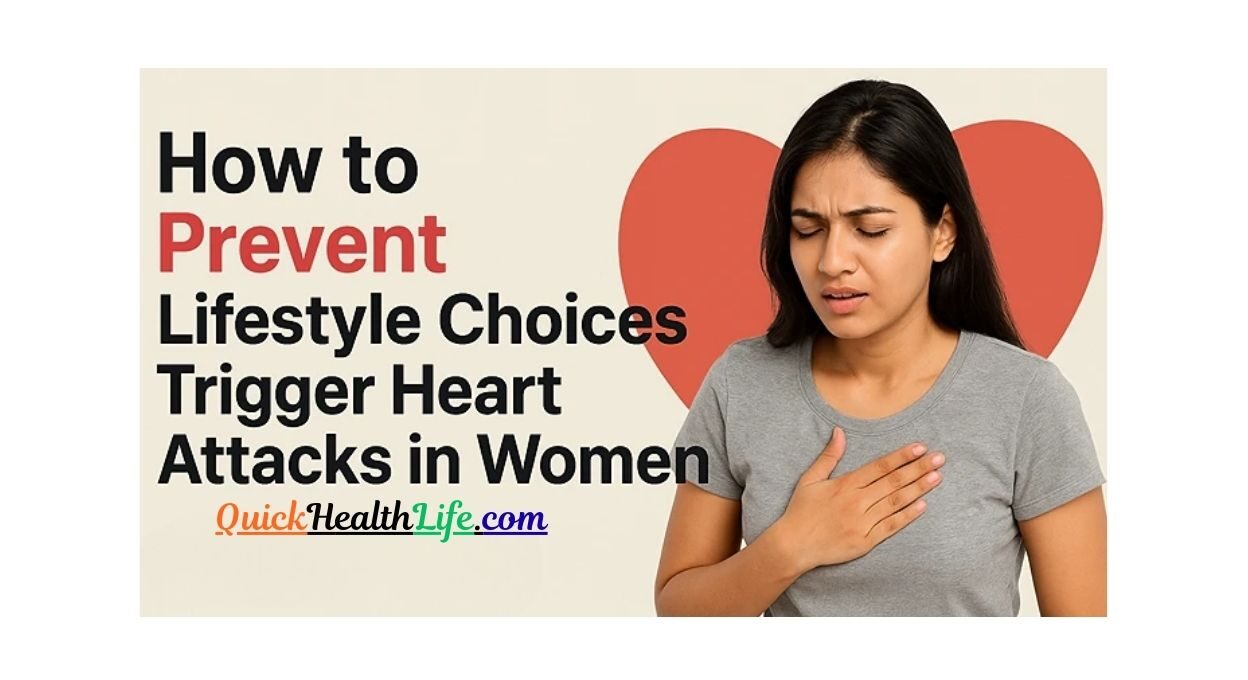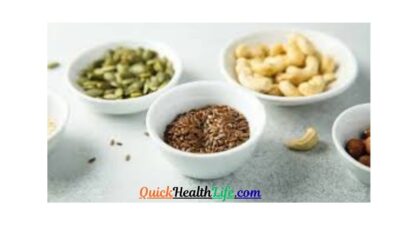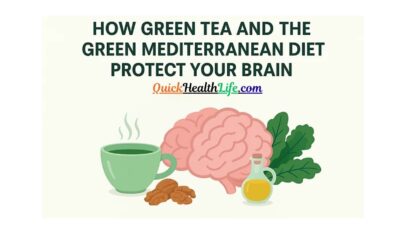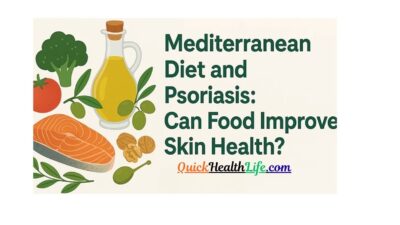Heart attacks were once thought of as a men’s problem. But today, younger and middle-aged women are experiencing heart attacks at alarming rates. The surprising part? In many cases, it isn’t just genetics—it’s lifestyle choices that trigger the risk.
Why Women Are More Vulnerable to Heart Attacks
- Silent Symptoms: Women often don’t feel crushing chest pain; instead, they feel fatigue, nausea, or jaw pain.
- Stress + Lifestyle Pressure: Balancing work, family, and hormonal changes add extra strain.
- Diabetes & Hormones: Women with diabetes or PCOS are at higher risk.
- Lifestyle Triggers: Smoking, processed food, lack of sleep, and sitting too long.
The good news is that 80% of heart attacks can be prevented with lifestyle changes.
Table of Contents
Lifestyle Choices That Trigger Heart Attacks in Women
1. Poor Diet Choices
- High sugar → raises blood sugar and damages vessels
- Fried food & junk → increases cholesterol
- Low fruit/vegetable intake → weakens immunity and heart
2. Lack of Exercise
- Sitting all day reduces blood flow
- Lack of movement → obesity + high blood pressure
3. Smoking & Alcohol
- Smoking narrows arteries
- Excess alcohol weakens heart muscles
4. Stress & Mental Health
- Chronic stress = high cortisol = damaged arteries
- Women often ignore stress symptoms
5. Poor Sleep Habits
- Sleeping less than 6 hours regularly doubles heart attack risk
- Sleep apnea and restless nights increase blood pressure
Lifestyle Risks vs Heart Health Impact
| Lifestyle Choice | Impact on Heart | Risk Level |
|---|---|---|
| Smoking | Damages arteries, increases clotting | Very High |
| Junk Food & Sugar | High cholesterol, diabetes risk | High |
| Sedentary Lifestyle | Obesity, hypertension | High |
| Stress & Anxiety | Inflammation, blood pressure spikes | High |
| Poor Sleep | Increases blood sugar & BP | Medium |
| Alcohol Overuse | Weakens heart muscles | Medium |
How to Prevent Lifestyle-Triggered Heart Attacks in Women
1. Eat a Heart-Healthy Diet
- Add fruits, vegetables, nuts, and whole grains
- Use healthy oils (olive, mustard, sunflower)
- Avoid fried and processed snacks
Foods That Protect the Heart:
- Avocado 🥑
- Almonds & Walnuts 🌰
- Oats & Barley 🌾
- Fish rich in Omega-3 🐟
- Green leafy vegetables 🥬
2. Exercise at Least 30 Minutes Daily
- Walking, cycling, yoga, or swimming
- Avoid sitting for long hours
- Even 10-minute walks after meals improve circulation
3. Quit Smoking & Limit Alcohol
- Within 1 year of quitting smoking, heart risk reduces by 50%
- Women should not exceed 1 drink per day
4. Stress Management
- Practice yoga, meditation, or deep breathing
- Take small breaks from work
- Maintain social connections
5. Improve Sleep Quality
- 7–8 hours of restful sleep is ideal
- Avoid late-night screen time
- Keep a fixed bedtime
6. Monitor Health Regularly
- Blood pressure, cholesterol, and sugar tests every 6–12 months
- ECG and check-ups if you have family history
7. Emergency Tricks People Search For (Myth vs Truth)
- “7-second trick to prevent heart attack” → Not scientifically proven
- “Stop heart attack in 30 seconds” → Impossible without medical help
- What works: Call emergency services + chew aspirin if advised
Never rely on quick-fix myths. Prevention is about daily habits.
Cost of Preventive Care vs Heart Attack Treatment (2025)
| Action | Cost (India) | Cost (USA) |
|---|---|---|
| Annual preventive check-up | ₹3,000 – ₹8,000 | $100 – $250 |
| Healthy diet & lifestyle | ₹5,000/month | $80/month |
| Heart attack treatment (surgery + ICU) | ₹2,00,000 – ₹5,00,000 | $50,000 – $1,00,000 |
FAQs
Q1. How can women prevent heart attacks naturally?
By eating a healthy diet, exercising, avoiding smoking, and managing stress.
Q2. What is the 7-second trick to stop heart attacks?
There’s no scientific 7-second trick. Immediate medical attention is the only solution.
Q3. Can food prevent heart attacks?
Yes. Omega-3 rich fish, nuts, oats, fruits, and vegetables reduce risks.
Q4. How to prevent heart attacks at night?
Maintain blood pressure, avoid heavy dinners, sleep 7–8 hours, and manage stress.
Q5. How do I know if I’m having a heart attack?
Unusual fatigue, nausea, jaw/back pain, chest tightness, or shortness of breath.
Q6. Can women survive a heart attack at home?
Survival depends on quick medical help. Always call emergency services immediately.



